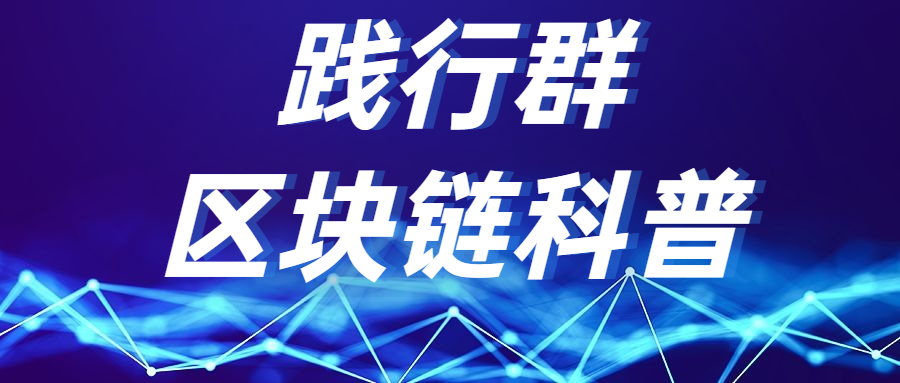
点对点数字货币比特币于2009年首次亮相,随之迎来了加密货币的新时代。虽然世界各地的税务机关、执法机构和监管机构仍在讨论最佳实践,但一个相关的问题是:比特币是合法的还是非法的?答案是——这取决于用户的所在地和行为。
The point-to-point digital currency bitcoin, which first appeared in 2009, ushered in a new era of encryption currency. While tax authorities, law enforcement agencies and regulators around the world are still discussing best practices, a related question is: is Bitcoin legal or illegal? The answer is -- depending on the location and behaviour of the user.
比特币不是由任何央行发行、背书或监管的。相反,它们是通过一种被称为挖矿的计算机生成过程创造的。比特币除了是一种与任何政府都无关的加密货币之外,还是一种点对点支付系统,因为它不以物理形式存在。因此,它为跨境交易提供了一种便捷的方式,无需支付汇兑费用。它还允许用户保持匿名。
Bitcoin is not issued, endorsed or regulated by any central bank. Instead, it is created through a computer-generated process known as mining. In addition to being an encrypted currency that does not concern any government, it is a point-to-point payment system because it does not exist in physical form.
消费者能直接在在线零售商那里用比特币购买商品和服务,从比特币自动取款机中取出现金,并在一些实体商店使用比特币。很多交易所都可以交易比特币,虚拟货币相关的投资和ICO吸引了投资者的兴趣。虽然比特币乍一看似乎是一个成熟的虚拟货币体系,但仍然没有统一的国际法律来监管比特币。
Consumers can buy goods and services directly from online retailers in bitcoin, take money from bitcoin ATMs, and use bitcoins in some real shops. Many exchanges can trade bitcoins, and virtual currency-related investments and ICO attract investor interest.
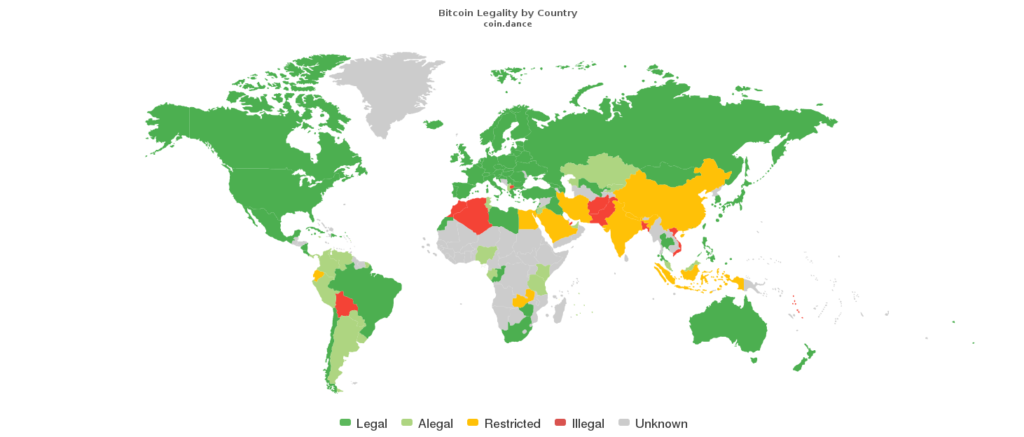
在有些国家比特币可以用作货币、纳税、购买商品或像商品一样交易。 在有些国家,持有或者交易比特币可能是非法的。还有一些国家甚至懒得去监管它,在这些国家比特币和其他加密货币处于法律的边缘。中美也在不断地探索对比特币和加密货币的监管,美国联邦机构将加密货币置于现有监管框架内,而中国除了加强对货币和虚拟货币的控制,甚至会将加密货币纳入到正式的法规中。
In some countries, the holding or trading of bitcoins may be illegal. In others, there are countries that do not even want to regulate it, and in these countries bitcoins and other encrypted currencies are on the edge of the law.
1、美国宪法没有禁止创建虚拟货币
《美国宪法》第一条第八款第(5)项规定,联邦政府保留铸造货币和调节货币价值的权力。但是,禁止流通和使用类似货币的“未经授权的工具”的法规并没有被解释为禁止任何形式的虚拟货币。迄今为止,这些法规只适用于起诉伪造的美元纸币和硬币。
Article 1, paragraph 8 (v), of the United States Constitution provides that the federal government retains the power to forge currency and to regulate its value. However, the regulations prohibiting the circulation and use of “unauthorised instruments” similar to that of currencies are not interpreted as prohibiting any form of virtual currency. To date, these regulations apply only to the prosecution of counterfeit United States dollar banknotes and coins.
2、美国金融犯罪执法网络局将加密货币交易视为货币服务业务
美国金融犯罪执法网络局(FinCEN)是美国财政部的一个分支机构,它将比特币交易所视为货币服务,要求加密货币管理员根据《银行保密法》注册为货币服务业务(MSB)。在其2013年指南中,FinCEN将虚拟货币与货币区分开来。而“真实”货币的特征是“美国或任何其他国家被指定为法定货币的硬币和纸币….” 虚拟货币是“在某些环境中像货币一样运行的交换媒介,但不具备真实货币的所有属性。”
In its 2013 guide, the United States Financial Crimes Enforcement Network (FINCEN), a branch of the United States Department of the Treasury, treats the Bitcoin Exchange as a currency service, requiring an encrypted currency administrator to register under the Bank Secrecy Act as a currency service operation (MSB). In its 2013 guide, FinCEN distinguishes virtual currency from currency. The “real” currency is characterized by “coin and banknotes designated as legal currency by the United States or by any other country #8230;... Virtual currency is a “transaction medium operating in some environments as a currency, but does not possess all the attributes of real currency”.
3、尽管美国证券交易委员会(SEC)和联邦地区法院将比特币描述为一种货币形式,但通过比特币或以太坊筹集资金的其他代币构成了证券。
法院和证券交易委员会还努力遏制欺诈,并得出结论,根据证券交易委员会诉豪威案,使用比特币或以太坊的融资工具构成了一种证券。谢弗斯案和证券交易委员会都认为,交易或代币符合三因素豪威测试,因为这些交易涉及(1)货币投资或货币形式,(2)参与一家企业,(3)预期利润将来自发起人或第三方的努力。这种定性将加密货币置于《证券法》的范围内,要求代币发行者要么向证券交易委员会提交注册要求,要么获得充分的豁免。
The Court and the Securities and Exchange Commission have also worked to curb fraud and have concluded that the use of bitcoins or Ether financing instruments constitutes a security under the Securities and Exchange Commission v. Howe. Both the Scheffers case and the Securities and Exchange Commission have held that transactions or tokens meet the three-factor luxury test because they involve (1) monetary investment or monetary form, (2) participation in an enterprise, and (3) the expectation that profits will come from the efforts of the initiator or third parties. Such a characterization places encrypted currencies within the scope of the Securities Act, requiring the issuer of the token currency either to submit a registration request to the Securities and Exchange Commission or to obtain a full exemption.
4、美国商品期货交易委员会将虚拟货币描述为一种商品形式
在2015年针对Coinflip,Inc .的诉讼中,商品期货交易委员会(CFTC)裁定,根据《商品交易法》(CEA)第1a(9)条的包容性定义,比特币和其他虚拟货币是商品,其中”商品”包括,除其他事项外,“未来交付合同目前或将来涉及的所有服务、权利和利益。” 在2016年,CFTC对Bitfinex采取了行动,因为该公司在没有注册的情况下运营一个加密货币的网上交易平台,并且未能满足“实际交付”要求,否则会要求将交易排除在《商品交易法》第2(c)(2)(D)(ii)(III)(aa)条CFTC的管辖范围之外。
In the 2015 proceedings against Coinful, Inc., the Commodity Futures Trading Commission (CFTC) ruled that Bitcoin and other virtual currencies were commodities under the inclusive definition of article 1a (9) of the Merchandise Transactions Act (ECA), of which 8221; commodities” included, inter alia, “all services, rights and interests involved in future delivery contracts, present or future.” In 2016, CFC took action against Bitfinex because it operated an encrypted currency online trading platform without registration and failed to meet the “actual delivery” requirement, otherwise requiring that the transaction be excluded from the jurisdiction of CFTC under article 2 (c) (2) (D) (ii) (III)(aa) of the Merchandise Transactions Act.
5、美国国税局将虚拟货币定性为财产
2014年3月25日,美国国税局发布了2014-21号通知,该通知规定,出于联邦税收目的,所有虚拟货币都被视为财产,而不是货币。根据该通知,虚拟货币在美国或任何其他司法管辖区都不是法定货币。当加密货币在实际货币中具有同等价值或作为实际货币的替代品时,它被称为可兑换虚拟货币。因此,作为工资支付的可兑换虚拟货币的公平市场价值“应缴纳联邦所得税预扣、联邦保险缴款法案(FICA)税和联邦失业税法案(FUTA)税“。
On 25 March 2014, the United States IRS issued Circular 2014-21, which states that all virtual currencies are considered property, not currency, for federal tax purposes. According to the circular, virtual currencies are not legal currencies in the United States or in any other jurisdiction. When an encrypted currency has equal value in real currency or is a substitute for real currency, it is called a convertible virtual currency. Thus, the fair market value of a convertible virtual currency paid as a wage “shall be paid federal income tax withholding, federal insurance contribution (FICA) tax and federal unemployment tax (FUTA) tax”.
6、美国货币监理署(OCC)批准联邦特许银行和储蓄机构可以参与独立的节点验证网络,并使用稳定币进行支付活动
“虽然其他国家的政府已经建立了实时支付系统,但美国一直依赖我们的创新部门来提供实时支付技术。其中一些技术是由银行联盟建立和管理的,一些是基于独立的节点验证网络,如区块链,”美国货币监理署署长布莱恩·布鲁克斯说。“总统的金融市场工作组最近阐明了一个强有力的框架,以开创一个以稳定的货币为基础的金融基础设施的时代,确定重要的风险,同时允许以与技术无关的方式管理这些风险。我们的信函消除了任何法律上的不确定性,即银行有权连接到区块链作为验证节点,从而代表客户进行稳定币的货币支付,这些客户对这些产品的速度、效率、互操作性和低成本的要求越来越高。”
“Although other governments have put in place real-time payment systems, the United States has relied on our innovative sectors to provide real-time payment technologies. Some of these technologies have been established and managed by banking unions, some by independent nodes-based certification networks, such as block chains,” says Brian Brooks, Administrator of the United States Monetary Supervisory Authority. “The President’s Financial Markets Working Group has recently articulated a strong framework for creating an era of stable monetary-based financial infrastructure, identifying important risks, while allowing them to be managed in a technology-neutral manner.
1、中国长期禁止私人发行代币票券,并对海外现金交易实施严格控制。
《中国人民银行法》指定中国人民银行(人民银行)为发行货币和管理货币流通的唯一权力机构。第20条禁止中国人民银行以外的任何单位或个人印制或发行可替代人民币的代币票券。第16条强调,人民币是唯一的“法定强制货币”,任何人或单位不得拒绝以人民币付款,特别是为了偿还公共或私人债务。
The People's Bank of China Law designates the People's Bank of China (PBC) as the sole authority to issue and manage currency flows. Article 20 prohibits any entity or individual other than the PBOC from printing or issuing vouchers in exchange for the RMB. Article 16 emphasizes that the RMB is the only “legally compulsory currency” and that no person or unit may refuse to pay in the RMB, in particular in order to pay public or private debts.
此外,国家外汇管理局对个人可获得的外汇总额规定了每年50,000美元的上限。中国人民银行和国家外汇管理局都明确禁止个人未经当地外汇管理部门批准直接投资外国资本市场。违反此类规定可能会导致刑事责任。
The People’s Bank of China and the State Foreign Exchange Administration explicitly prohibit individuals from investing directly in foreign capital markets without the approval of the local foreign exchange authorities. Violations of such regulations may lead to criminal liability.
2、中国在网络游戏行业建立了基于信息披露的“虚拟货币”法规
中国允许两类实体从事虚拟货币业务:网络游戏运营商(“游戏运营商”)和网络游戏虚拟货币兑换服务提供商(“服务提供商”)。游戏运营商是“经营网络游戏并发行/提供虚拟货币的公司”,服务提供商是“为网络游戏用户兑换虚拟货币提供平台服务的公司。”单个实体不能同时既是游戏运营商又是服务提供商。在2017年修订之前,之前的《网络游戏管理暂行办法》对游戏运营商和服务提供商规定了1000万元人民币(2013年约为160万美元)的最低注册资本要求,并要求获得互联网内容提供商许可证。游戏运营商还需要获得互联网文化运营许可证。 必须向潜在用户披露虚拟货币、单价、购买方法以及为保护用户利益而制定的安全措施。
China allows two types of entities to engage in virtual money business: network game operators (“gaming operators”) and virtual network game money exchange service providers (“service providers”). Game operators are “companys that run network games and issue/provide virtual money” and service providers are “companys that provide platform services for network game users to convert virtual money.” Individual entities cannot be both game operators and service providers at the same time. Prior to the 2017 revision, the previous Interim Measures for the Management of Network Game imposed minimum registration capital requirements of 10 million yuan (approximately $1.6 million in 2013) on game operators and service providers, and require Internet content providers to license Internet content providers.
3、2013年,中国允许“在线商品”交易,只禁止金融机构从事比特币相关业务
2013年12月,人民银行和其他四个部委共同发布了一份关于比特币和其他虚拟货币的通知(银发〔2013〕289号),声明比特币不是一种货币,它被视为“虚拟资产或数字商品”。通知明确禁止金融机构和支付公司从事与比特币相关的业务。虽然通知禁止比特币作为商品和服务的支付工具,但公众可以自由买卖“在线商品”,这意味着比特币和加密货币之间的交易没有被禁止。与此同时,通知警告公众比特币的匿名性质,并宣布其为“投机资产”。中国政府还声称要加强对比特币相关网站的监管,降低与比特币相关的洗钱风险。
In December 2013, the People's Bank and four other ministries jointly issued a circular on Bitcoin and other virtual currencies (. While the circular prohibited Bitcoin as a tool for the payment of goods and services, 在取缔前的12个月,中国控制了比特币交易市场的90%交易量。鼎盛时期并没有延续下来。ICO的“疯狂”升温受到了中国金融监管部门的密切关注。国内监管部门表示要肃清整顿ICO的决心。 In the 12 months before the ban, China controlled 90% of the transactions in the Bitcoin trading market. The boom period did not last. The ICO’s “crazy” warming was closely monitored by China’s financial regulators. 2017年9月4日,中国人民银行、中央网信办、工业和信息化部、工商总局、银监会、证监会、保监会、七部委联合发布了《关于防范代币发行融资风险的公告》,明确表示将ICO定性为一种未经批准的非法公开融资行为,涉嫌非法发售代币票券、非法发行证券以及非法集资、金融诈骗、传销等违法犯罪活动,应予以全面整顿,坚决治理市场乱象。 On 4 September 2017, the People's Bank of China, the Central Networked Information Office, the Ministry of Industry and Informatics, the General Directorate of Commerce and Industry, the Banking Supervisory Board, the CVM, the Insurance Supervisory Board, and seven ministries jointly published
2020年10月23日,央行发布关于《中华人民共和国中国人民银行法(修订草案征求意见稿)》公开征求意见的通知。该法是我国第一次将涉及虚拟货币、加密货币的“代币”等纳入法律。可以看出此次修改法律的核心,主要是对发行代币进行严格禁止,本文就此征求意见稿提及代币的内容进行解释。 On October 23, 2020, the Central Bank issued a notice of public comment on the People’s Republic of China People’s Bank of China Law (Application draft of the revised draft). This law is the first time that we have incorporated into the law “demons” involving virtual currency, encrypted currency, and so on. 总的来说,美国的相关监管部门,例如金融犯罪执法网络局、证券交易委员会、商品期货交易委员会、国税局和货币监理署根据各自的监管领域,在现有的监管框架内尝试把比特币等加密货币纳入到监管之中,相对来说更加具体和具备可操作性,为加密货币和区块链的创新和发展提供了相对宽松的环境。 In general, the relevant United States regulatory authorities, such as the Financial Crimes Enforcement Network, the Securities and Exchange Commission, the Commodity Futures Trading Commission, the IRS and the Monetary Supervisory Authority, under their respective regulatory areas, have attempted, within the existing regulatory framework, to include encrypted currencies such as bitcoins, which are relatively specific and operational, providing a relatively relaxed environment for the innovation and development of encrypted money and block chains. 而中国经常是几个相关部门以同时发通知或者公告的形式,试图对加密货币和区块链行业进行规范,感觉趋势是越来越严的,区块链行业的创新面临更多的监管挑战。对于个人持有和买卖比特币在中美都是合法的,但是对于该行业的创业来说面临的监管环境非常不一样。比特币和区块链行业的监管还处在探索期。 and China, often in the form of simultaneous circulars or circulars, attempts to regulate the crypto-currency and block-chain industries seem to be on the rise, with innovation in the block-chain industries facing more regulatory challenges. Both individual possession and purchase of bitcoin are legal in China and the United States, but the regulatory environment is very different for the industry’s entrepreneurship. The regulation of the bitcoin and block-chain industries is still in the process of being explored. 比特币当前区块高度:673,213 内容整理来源: Countries Where Bitcoin Is Legal & Illegal (DISH, OTSK) 翻译、排版:恬儿 内容团队:李卫军、寂寞不语、杨卫祥、穆逸扬 本文主理人:李卫军 顾问:Sylvia 统筹:志刚 技术支持:运营组4、2017年,中国禁止了加密货币融资和ICO,关闭了加密货币交易平台。
5、央行准备对银行法进行修改,首次纳入数字货币内容
注册有任何问题请添加 微信:MVIP619 拉你进入群

打开微信扫一扫
添加客服
进入交流群

















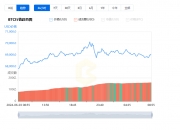
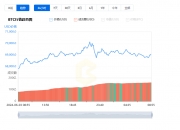
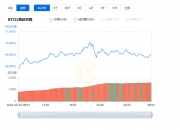

发表评论